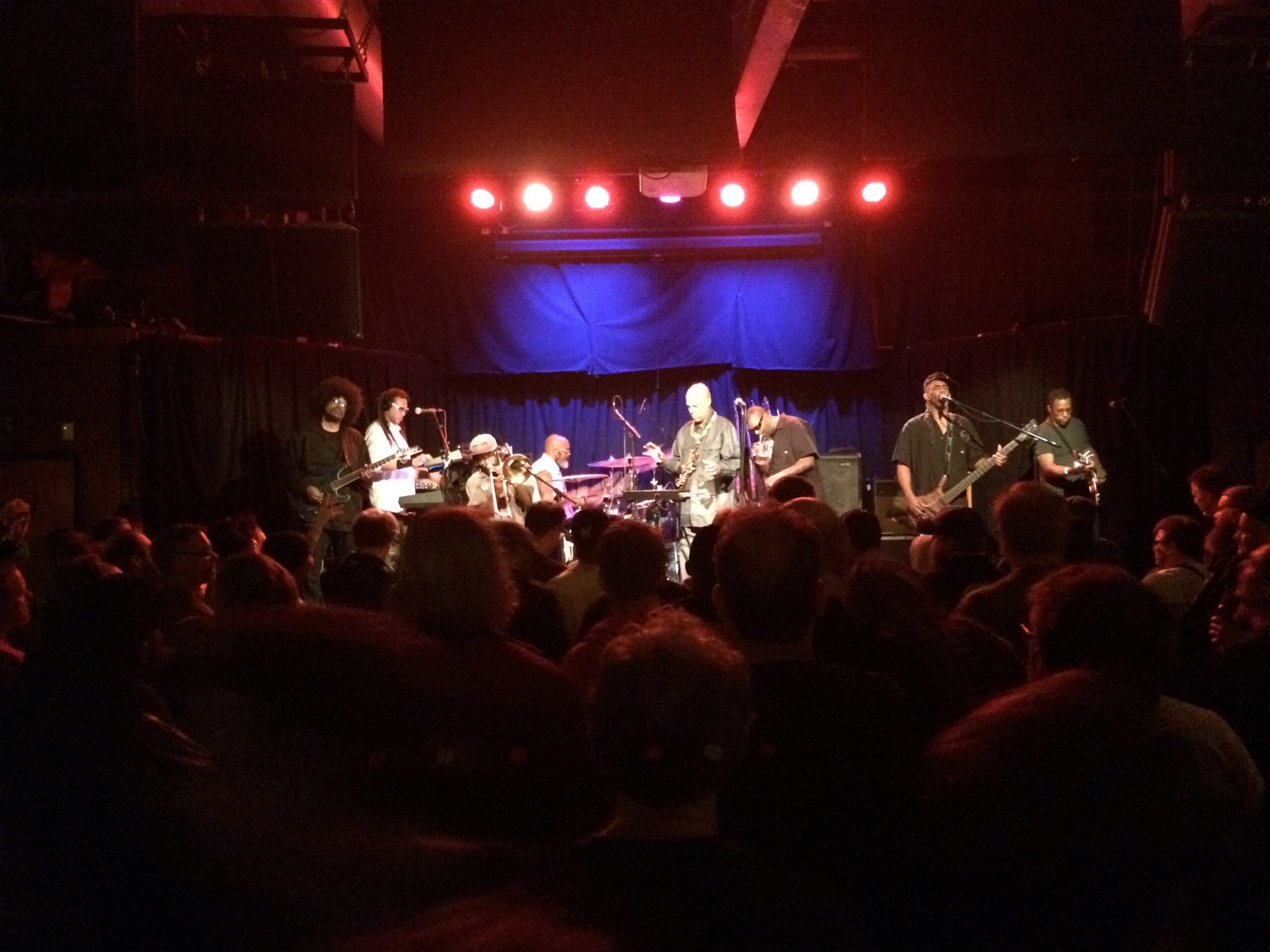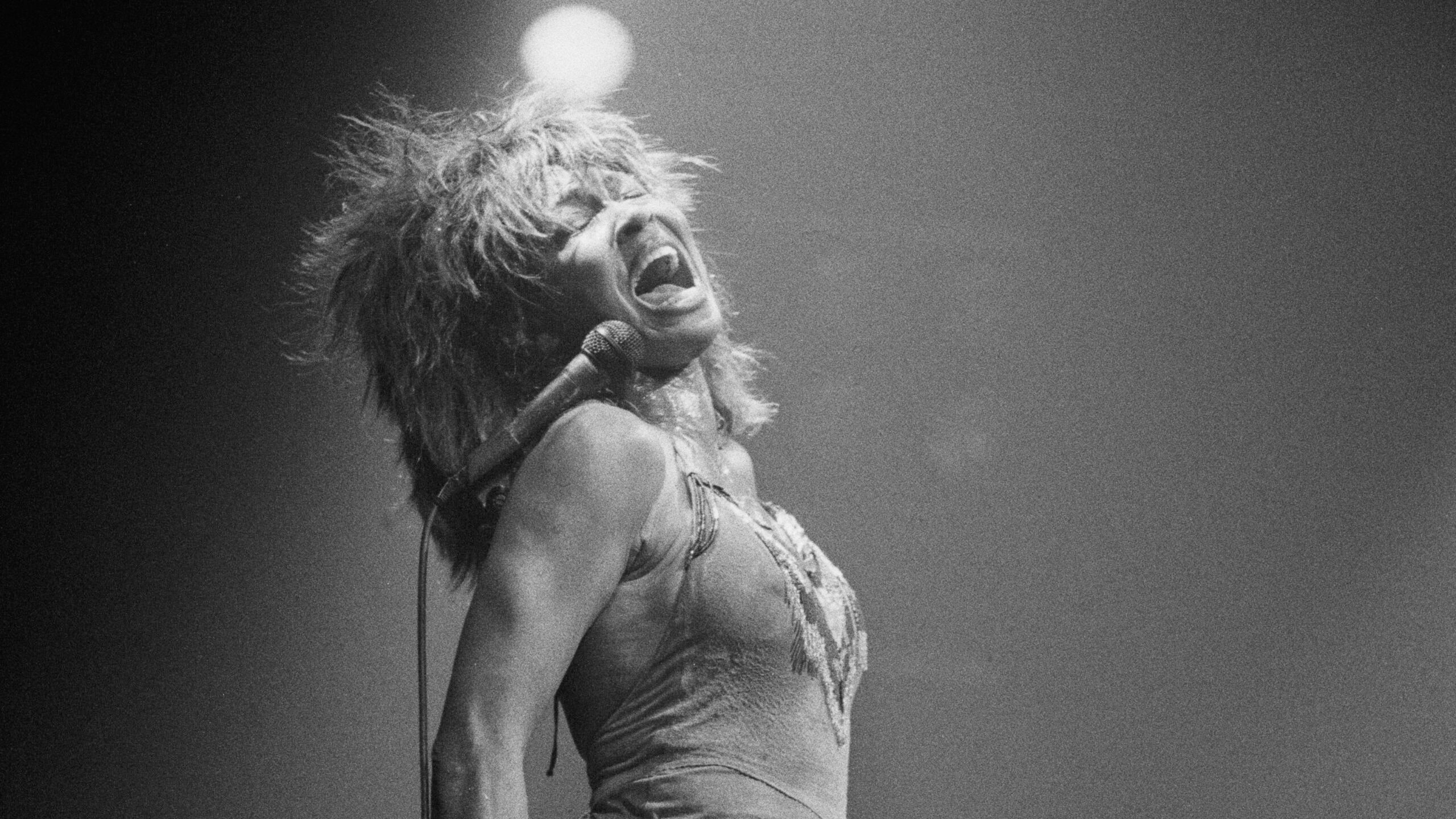On stage, Fishbone performs like an aged fighter backed into a corner and down on points. These ska-punk-funk legends are fierce but grizzled road warriors and the personification of underdogs who are all heart.
At the High Noon Saloon in Madison on Friday night, the members of the all-black, Los Angeles-based band reinforced their reputation as uncompromising musical pioneers and thick-headed stalwarts, bouncing and sweating and rocking out like every song is an audition, even as bar-band defeat stares them in the face.
As one of alternative rock’s coulda’ been a contenders from the late 1980s and early ’90s, Fishbone battled back against both their past and present at the two-hour show that saw them reuniting with erstwhile bandmates and oddly celebrating the anniversary of the two-decade-old album that definitively closed the door on any of their rock-star dreams. Wearied but unbroken, these musicians know that if they want a future, it will be a struggle. They’re used to that by now.
Stay informed on the latest news
Sign up for WPR’s email newsletter.
The now eight-piece group that crowded on the tiny stage was a blend of old and new-ish members united in presenting a melange of skronky, horn-laced ska, punkish tantrums and Funkadelic-flavored rock. Centered on wild-eyed, poetry-spewing frontman/saxophonist Angelo Moore, the band is now a reunion act with former guitarist John Bigham and most importantly, drumming dynamo Phillip “Fish” Fisher back in the fold after nearly 20 years away. (Two of the group’s other original members continue to sit out any reunions.)
Besides nostalgia, why we were all here is a little unclear. Either this tour is just a celebration of the past or a reinforced attempt to recoup all that was denied them in the past. Fishbone is a band whose story and members have plenty of scars and the audience could see and hear many of them during the performance.
The group’s tumultuous times were vividly recounted in 2010’s rock-umentary, “Everyday Sunshine: The Story Of Fishbone,” which follows this troupe of school pals coming up in the same Los Angeles rock scene in the ’80s that yielded the Red Hot Chili Peppers and Jane’s Addiction. They earned a reputation as a phenomenal live act and college rock-era favorite, which led to high-energy appearances on “Saturday Night Live” and the fabled touring version of Lollapalooza. But for a variety of reasons — ranging from the accidental to the deliberate to self-inflicted — Fishbone ultimately failed to achieve the kind of fame that many fans and contemporaries predicted.
That this tour, which is technically to celebrate the group’s 1996 record, “Chim Chim’s Badass Revenge,” is a weird choice. The record has a peculiar, abrasive reputation in Fishbone’s discography and when it was released in the mid-’90s. The record’s anti-pop orientation meant it failed to connect with audiences. It marked the effective end of the group’s commercial phase. Fishbone’s prospects continued to dim over the ensuing years as they played smaller and smaller venues, released progressively weaker albums and steadily shed original members.
All these years later, watching the group in action can be unsettling. They remain expert musicians decked out in matching dark jump suits, although in some cases, with diminishing capacities. Moore is older and doesn’t flip or stage dive without heed as he once did. Juggling an array of saxophones or waving his hands near his theremin like a sorcerer, he is still a vibrant presence and the primary ringleader of this orchestra. One can detect that his antics come across as more mad than madcap in recent years. His vocal range has lowered considerably, but he still conveys the fanatical passion of a revved-up soul singer or the gusto when he was a Mohawk-ed punk howler. And seeing him and his comrades sing, play and sweat while performing some occasional cruddy songs on the cramped stage offers plenty of reminders that life isn’t fair and happy endings aren’t for everyone.
The early highlights of the show were pleasing renditions torn from the group’s songbook. The funky, horn-fueled funeral parade of “Pray To The Junkiemaker” was a workout for the cavalier-hatted Moore, trumpet player/vocalist “Dirty” Walt Kibby and newbie trombonist “Flying” Jay Armant. Their pop-rock cover of Curtis Mayfield’s “Freddie’s Dead” provided the right amount of head-banging crunch and led into the creeping metallic churn of “Swim,” which played to the strengths of ex-Suicidal Tendencies guitarist Rocky George.
Things changed as the band dug deeper into the “Chim Chim” album. Sophomoric ditties like “In The Cube” (a stupid ode to pooping) and “Alcoholic” (a cheap dedication to boozing) demonstrated this troupe’s utter competence in ska, rocksteady and Southern California skate punk, but also their weakness as pop songwriters. The raging rumble of “Rock Star” is and was a tuneless rant, a B-side that should never have left the dark reaches of a long player. Live, Fishbone couldn’t make more out of it.
The album’s fun-rock jams were more enjoyable and fluid experiences. The title track for “Chim Chim,” “Psychologically Overcast” and the epic “Fight For Nutmeg” found the band stretching out with stadium-rock grandeur and more complicated dynamics. Bassist Norwood Fisher (drummer Fish’s brother) was the springboard, using his fingers and slaps to push and shove the melody around. The vocalists chanted in unison or transformed into a squawky horn section.
The funky Kibby showpiece, “Knock It,” was a party thumper that briefly turned the area in front of the stage into a proper dance floor than a mosh pit. Moore’s theremin playing offered the cut an eerily perfect flying-saucer sound that made this a perfect merger of ’80s New Wave and George Clinton funk-ateering.
The combination of old and new band members is a little uneven. Back in the band and yet still largely aloof, Bigham lurked on the side of the stage and seemed underutilized, as he was for most of his first tenure in the group. Meanwhile, Fish’s presence behind the kit was a thrilling revelation and the clearest sign that this could still be a redemptive homecoming. The Fisher brothers’ locked-in elastic groove was a key facet of Fishbone’s allure and the secret to the combo’s sonic flexibility. Reinstituted with Fish’s swirl of rhythmic precision, hammering downbeats and gut-punching kick drum, the foundations for Fishbone to accomplish anything appear at the ready.
The crowd saw glimpses of this outfit’s greatness when the band was called back for an encore of Fishbone’s pop ska classics, “Ma & Pa” and “Skankin’ To The Beat.” The musicians hit the groove hard and spun with flourishes of honking horns or theremin warbling. The joyful musical bounce spawned the night’s first true mosh pit, with the strange sight of middle-agers cautiously bumping into each other in the most non-threatening melee one could imagine. (No hips were broken or otherwise injured in the reliving of past punk glories.)
The finale of “Party At Ground Zero” served as both tribute and ritual to this band of musical renegades who in turn attracted an audience of the same. The performance was boisterous and the vocals became more barking and roughhewn as the song climaxed. The lovably campy song was recorded during the Reagan years and populated with Cold War lyrical imagery that appear relevant again given the tensions and uncertainty surrounding allegations of Russian inference in Donald Trump’s election. It’s not as it was, but Fishbone are still exciting and the memories this music conjured are still warm and fuzzy.
From what is seen onstage and off, it’s clear that there’s not going to be a monstrous comeback album nor a Rock and Roll Hall of Fame induction in Fishbone’s future. There’s only more recruits for their small cult following and more concert moments that serve as fodder for their mythology.
On this night, as has been plain for the past three decades, Fishbone will meet their collective future and go out swinging. And come what may, their legend will grow.

